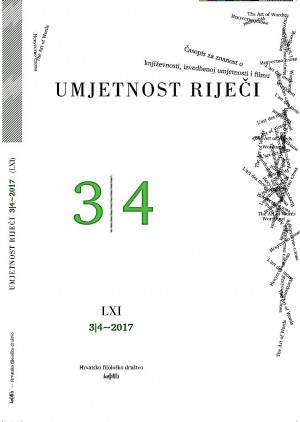SLOVENSKA PROSTORNA KNJIŽEVNA ZNANOST I KNJIŽEVNA INTERPRETACIJA
SLOVENIAN SPATIAL ORIENTED LITERARY STUDIES AND LITERARY INTERPRETATION
Author(s): Urška PereničSubject(s): Geography, Regional studies, Recent History (1900 till today), Sociolinguistics, Slovenian Literature, Theory of Literature
Published by: Hrvatsko filološko društvo
Keywords: spatial literary studies; empirical literary studies (ELW); literary geography; postmodern humanities; spatial turn; spatial data; thematic literary map; biographies of writers; quantitative analysis;
Summary/Abstract: The paper examines how to interpret literature from the viewpoint of modern spatially oriented literary studies, more precisely, of its Slovenian academic version, which has established in the last decade. It draws on the tradition of literary geography from the beginning of the 20th century and updates it theoretically and methodologically with the concepts of postmodern spatial humanities. It is productively connected with the empirical studies of literature (ELW), which have a longer tradition in Slovenia, especially through the conception of literature as a social system. Slovenian spatially oriented literary studies are based on a particular hypothesis about mutual influences between geospace, understood as a mesh of physical-natural and social conditions, and literature, understood as a literary communication. Slovenian literature is interpreted primarily through space. In literary studies, various types of spatial data come to the fore, which are, on the one hand, mainly relate to biographies of writers and the infrastructure of media and institutions, and, on the other, to literary texts that refer to geospace. Thematic literary maps – created using geographic information system technology (GIS) – are used to present, analyse and interpret the relations between geospace and the “life paths” of the most prominent Slovenian writers.
Journal: Umjetnost riječi
- Issue Year: 2020
- Issue No: 3-4
- Page Range: 301-318
- Page Count: 18
- Language: Croatian

